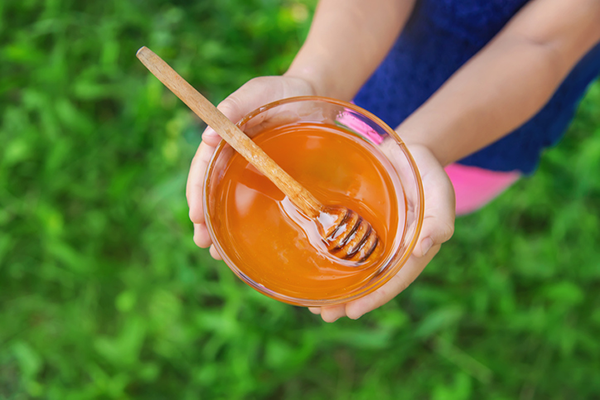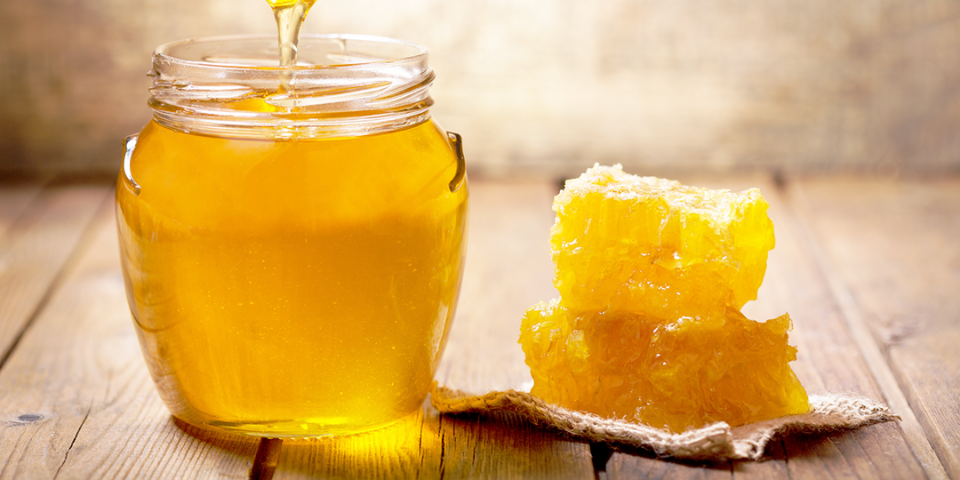Top 4 Surprising Health Benefits of Honey
Honey is a delightful, viscous substance produced by honeybees. Not only is it a natural sweetener, but it also boasts a rich history of health benefits. Throughout the ages, honey has been utilized for various medicinal purposes in Ayurveda.
Bees collect nectar from flowers and bring it back to their hive for processing, where it is partially digested into honey by enzymes. The flavor of honey varies depending on the type of flowers the bees visited — whether it be wildflower, avocado, or orange blossom.
Here's a comprehensive guide to honey, its role in your diet, and the advantages it offers.
Honey vs. Sugar

Honey is a natural sweetener, but it is not a low-calorie substitute for sugar. Nutritionally, honey is similar to plain sugar:
A tablespoon of honey contains:
- 61 calories
- 16 grams of sugar
A tablespoon of sugar contains:
- 48 calories
- 12 grams of sugar
If you enjoy honey, you can use it as a sugar alternative due to its additional beneficial nutrients (more on this below). However, if you prefer a sugar substitute with fewer nutritional implications, non-nutritive sweeteners like stevia or monk fruit extract, which contain zero calories and sugar, are worth considering.
Benefits of Honey
Honey primarily consists of sugar and water, but it contains around 200 other substances, including:
These components contribute to the extra benefits of honey.
1. It contains antioxidants
Natural honey contains antioxidant-like compounds such as flavonoids and phenolic acids. Antioxidants play a role in protecting cells from harmful free radicals.
Caveat: It is advisable to obtain most of your antioxidants from fruits and vegetables. However, if your diet is high in sweeteners, switching to honey may increase your antioxidant intake.
2. It may support the immune system
Several small animal studies and cell culture experiments suggest that honey can aid in supporting immune cell activity. While honey is not a guaranteed immunity booster, the evidence is promising, though further research is needed.
3. It may support digestion
In Ayurvedic medicine, honey has been traditionally used to aid digestion. However, modern scientific evidence on this claim is limited. If you suspect a digestive issue, consulting a healthcare professional is advisable.
4. It can soothe sore throats
Honey is commonly known to potentially alleviate sore throat discomfort. Adding honey to hot tea with a splash of lemon not only provides comfort but also coats the throat to alleviate irritation.
Possible Risks of Honey

Regular honey is generally safe for individuals over one year old. While microbes do not thrive in honey, it may contain botulinum spores that can become active when ingested. Young infants, whose immune systems are still developing, should avoid honey. Individuals allergic to bee pollen should also exercise caution.
Concerning raw honey, it is likely safe for consumption, but it may still harbor botulinum spores, making it unsuitable for young infants. Those with specific allergies should be vigilant, as raw honey contains trace amounts of yeast, wax, and pollen.
Raw honey, being unfiltered and unheated, may retain more of the valuable substances discussed above, potentially offering additional health benefits.
